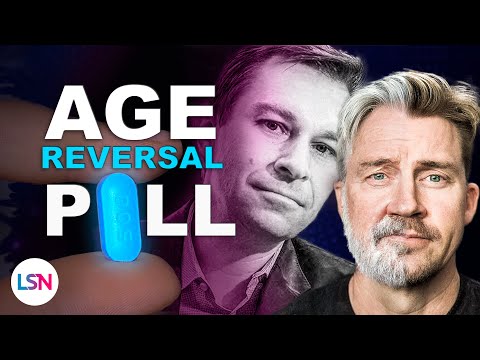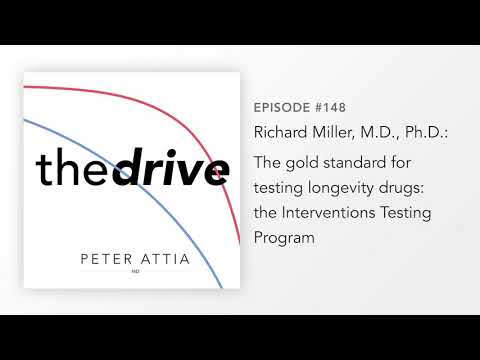What would happen if you took David Sinclair’s fictional age reversal pill at the same time you inject Harold Katcher’s E5 ?
Dr. Sinclair is an incredibly accomplished scientist and an even more talented businessman, who managed to sell his resveratrol company Sirtris Pharmaceuticals for over half a billion dollars.
I can’t imagine how much money his new “age reversal pill” venture will make, I just hope this pill works out better for his many followers than resveratrol.
Yes… but he’s had lots of products that don’t pan out, Resveratrol didn’t pan out, and Sirtris never created a product that worked and GSK lost $700 Million+ on its purchase of Sitris… so David’s track record is not great in terms of longevity products. I can’t think of any significant longevity advancements or products that have come out of David’s research and have actually helped extend people’s lives yet - but there his hope. He has done a good job of getting people interested in the field of geroscience with his book and public relations.
Yes on the one hand he’s done much to raise awareness for the longevity field, on the other hand the resveratrol fiasco (for everyone besides the Sirtris cofounders) has probably set back investment into the field by several years. I really do hope his new pill is a genuine success, would do much to give the longevity field attention for its potential ROI, financial and beyond, that it deserves.
Pretty sure he’s on the Rapa train too, just quietly ![]()
Right. I’ll be last in line to believe his next life extension product. …fool me twice, shame on me.
Yes, I’m surprised they didn’t cover the fact he is taking Rapamycin.
A little look back.
That same year, two scientists who were students in Guarente’s lab when Sinclair was there published a paper casting doubt on the underpinning of Guarente’s hypothesis that caloric restriction activates sir2 –a hypothesis that is critical to Sinclair’s own theories. (“I have independent-minded students, I guess,” Guarente told me with a wry smile.) The former students, Brian Kennedy and Matt Kaeberlein, both biologists at the University of Washington, claimed that, at least in yeast, caloric restriction could exert antiaging effects in the absence of sirtuins–the enzymes produced by sir2 and its mammalian homologues (such as SIRT1 ). Studies published soon after posed a more direct challenge to Sinclair’s contention that resveratrol mimics caloric restriction by activating sirtuins. Peter DiStefano, a coauthor of one of these studies and the chief scientific officer of Elixir, told me in 2005 that resveratrol does wondrous things, but it is unlikely to be an activator of the SIRT1 enzyme.
A generation ago, scientists often ignored or debunked claims of a “fountain of youth” pill.
“Until about the early 1990s, it was kind of laughable that you could develop a pill that would slow aging,” said Richard Miller, a biogerontologist at the University of Michigan who heads one of three labs funded by the National Institutes of Health to test such promising substances on mice. “It was sort of a science fiction trope. Recent research has shown that pessimism is wrong.”
Mice given molecules such as rapamycin live as much as 20 percent longer. Other substances such as 17 alpha estradiol and the diabetes drug Acarbose have been shown to be just as effective — in mouse studies. Not only do mice live longer, but, depending on the substance, they avoid cancers, heart ailments and cognitive problems.
History is replete with examples of cures that worked on mice but not in people. Multiple drugs, for instance, have been effective at targeting an Alzheimer’s-like disease in mice yet have failed in humans.
“None of this is ready for prime time. The bottom line is I don’t try any of these things,” said Felipe Sierra, the director of the division of aging biology at the National Institute on Aging at NIH. “Why don’t I? Because I’m not a mouse.”
The Hype
Concerns about whether animal research could translate into human therapy have not stopped scientists from racing into the market, launching startups or lining up investors. Some true believers, including researchers and investors, are taking the substances themselves while promoting them as the next big thing in aging.
“While the buzz encourages investment in worthwhile research, scientists should avoid hyping specific [substances],” said S. Jay Olshansky, a professor who specializes in aging at the School of Public Health at the University of Illinois at Chicago.
Yet some scientific findings are exaggerated to help commercialize them before clinical trials in humans demonstrate both safety and efficacy, he said.
Why do i still see Sinclair touting resveratrol in every Instagram post i see? — i literally see videos of him every day, from recent interviews/podcasts. Is he under contract to market it for Sirtis? Does he believe the ITP and other researchers are wrong? Why just not stay quiet about it and then just talk about SIRT1 separate from it? Move on! You’re likely going to win a Nobel from your mice eye age reversal experiments anyway.
(I just saw a video of him talking about it and — in classic old grumpy man style — had to vent; I apologize.)
It’s not just Sinclair touting resveratrol. To my surprise I see resveratrol popping up in lots of places listing longevity interventions. I have long disregarded resveratrol but I’m now accepting that resveratrol and many many other plant compounds have benefits to health and maybe longevity.
My personal approach is to avoid the rifle shot, cherry picking of the few things that have been studied, but instead eat as many different plants as possible to get as many of these beneficial effects I can.
Plus I get a lot of fiber which: fills me up, feeds a diverse and stable microbiome that produces SCFA to keep my gut lining healthy (and helps my immune system stay calm), and makes my mom happy with me (finally).
Good question. I suspect its him trying to salvage his reputation in the scientific community, but it could just be some sort of reflexive cognitive dissonance.
Its only his lab that has (from what I can tell) ever had any significantly positive results with resveratrol (and that in some mice fed a very high fat diet); everyone else says it does nothing in their lab. I tend to go with the majority of researchers, not the lone wolf who’s research nobody can duplicate.
@Joseph_Lavelle I think you’re being too generous on resveratrol. Have you listened to Richard Miller’s description of the ITP trials of resveratrol? Something with this bad a result just isn’t worth my time and effort and money. See the podcast below, queued up to the discussion on reseveratrol:
@RapAdmin I’m not trying to be generous at all. I’ve just stopped hating on resveratrol. I don’t supplement with resveratrol. I just eat plants.
Not clickbait.
Bottom line: NAD boosting may increase stem cell health.
“[Neurochemical basis of treatment of degenerative forms of chorea] - PubMed…
[Spina bifida and hydrocephalus as a sociopediatric task; report on the 30th Annual Meeting of the Germany Society for Social Pediatrics on 9 June, 1978 in Freiburg i. Br] - PubMed…
https://www.sciencedirect.com/science…
[Therapy with antacids] - PubMed…
Precipitation of egg white proteins below their isoelectric points by sodium dodecyl sulphate and temperature - PubMed”



